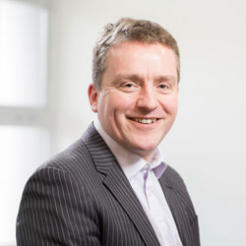More charities in London and the South East are planning to increase their spending over the next 12 months than those in the rest of England, according to the latest Charity Forecast Poll by the National Council for Voluntary Organisations.
NCVO surveys its members every quarter for the poll. The latest, with results from April to June this year, shows 55 per cent of respondents in London and the South East said they planned to increase their spending, compared to 48 per cent of charities in the rest of the country.
The umbrella body said 521 members responded to the quarter two poll.
It shows that the sector is experiencing growing levels of spending and optimism, NCVO said.
Overall, 50 per cent of charities planned to increase their spending, compared to 49 per cent the previous quarter.
When asked whether the economic conditions within the voluntary sector would be negative, neutral or positive over the next 12 months, 16 per cent said positive in the most recent poll, up from 14 per cent in quarter one.
But the figures also show that more growth is planned in London and the South East, and among bigger charities.
NCVO said the figures on growth could be affected by the higher numbers of high-income charities in London and the South East; of the 4,800 charities in the UK with an income of £1m or more, 43 per cent are based in London and the South East.
The poll shows that on average, 63 per cent of large charities, those with an income of £1m or more, plan to increase their spending in the next year, compared to an average of 51 per cent of lower-income organisations.
Medium-sized charities, with incomes of between £100,000 and £1m, were feeling the most pessimistic – 60 per cent of such respondents felt economic conditions in the sector would be negative over the coming year. This compares to 26 per cent of large charities and 30 per cent of smaller charities, with incomes of between £30,000 and £100,000.
Karl Wilding, director of public policy at NCVO, said: “We can’t draw firm conclusions about regional effects from this poll. However, it does seem to confirm our fears about a ‘squeezed middle’.
“We have been aware for some time that an organisation big enough to be running some significant services but not big enough to spread risk around its operations is more vulnerable, and these results seem to add weight to our concerns. Middle-income charities are feeling the uncertainty of a changing outlook in charity funding and services.”
Wilding said the growth in charities using NCVO’s Funding Central site, which provides access to funding and finance opportunities, shows organisations are continuing to search for new income streams. Funding Central, which is funded by the Cabinet Office, has seen 1,300 new users a month in the last year, NCVO said.









